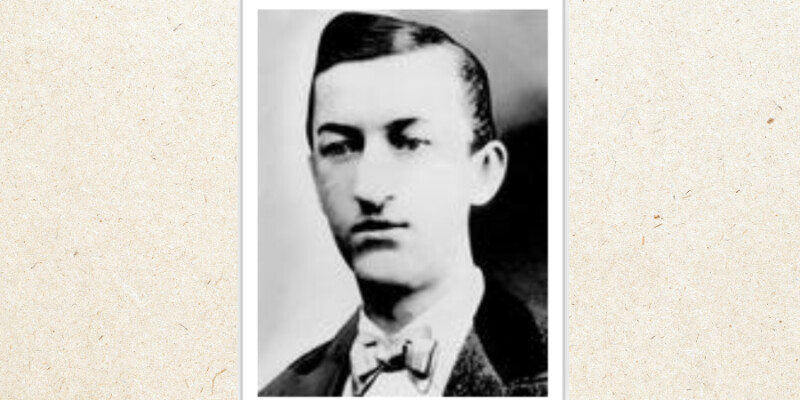Heber Grant received a patriarchal blessing that promised he would be called to the ministry in his youth. He knew that Church President Joseph F. Smith and Elder Erastus Snow of the Twelve had been called on missions as teens, so he anticipated that he would be called to serve a full-time mission as a very young man. In his day, young people did not submit papers for a mission but rather waited to receive notice of a call. He waited and waited and grew disturbed when, by age twenty-three, he had received no call. The lack of a mission call prompted self-doubt and personal anguish. He grew concerned about his status in the Church, about the patriarch’s lack of inspiration, and about the truth of the Church itself. As he reflected, “he realized that there could be no doubt about the reality of God and the truthfulness of the revelations given to the Prophet Joseph Smith. There was too much evidence; he had received too many personal confirmations to doubt.” So he reasoned that the patriarch had simply made a mistake. But that conclusion brought no peace. He did not tell anyone of his trouble, though the questions strained his faith. One day these thoughts flooded his mind as he walked alone down Main Street in Salt Lake City. Suddenly, he stopped walking, turned around, and said aloud, “Mr. Devil, shut up. I don’t care if every patriarch in the Church has made a mistake in a blessing, and told a lie, I believe with all my heart and soul that the gospel is true and I will not allow my faith to be upset.”
The negative thoughts about the promise never again returned. A few weeks later, the twenty-three-year-old was called to be the president of the Tooele Stake, the youngest stake president in the Church. Less than two years later he was called to the Quorum of Twelve Apostles. Though Heber had first fixated on the passing of time, he later gained a deeper understanding—that his blessing had promised a call to the ministry, not a call on a mission.1
▶ You may also like: How to navigate vague or unfulfilled promises in your patriarchal blessing—Q&A with Keith Erekson
. . . You may be tempted to think the time for your blessing’s promises to be fulfilled has passed. Expected milestones may come and go without the expected fulfillment. Perhaps you have made incorrect assumptions about wording or based on cultural norms. As the expected timing passes, you may also be tempted to doubt the patriarch, other teachings of the Church, or your own previous personal experiences. Wait upon the Lord with patience, and you will be surprised as you watch His promises unfold in your life. . . .
When Time Extends beyond Mortality
LeGrand Richards died two months before he turned sixteen, in a tragic accident at the Santa Monica Beach in California. His father—also named LeGrand, who would later serve in the Quorum of the Twelve Apostles—called the loss one of the greatest sorrows” he and his family ever experienced, and both parents felt partially to blame for “having let him go to the beach that day with his friends.” Furthermore, they “had read his Patriarchal Blessing, and we could not feel that it was time for him to go.” Then one Saturday evening, young LeGrand’s younger brother, LaMont, read his own blessing alongside that of his deceased brother. The boys had received their blessings on the same day from the same patriarch, and “the Lord gave [LaMont] the interpretation of the blessings.” The next morning the fourteen-year-old boy said to his parents, “You have not understood these blessings.” LaMont read from his blessing that he would be called to preach the gospel both “at home and abroad” (and he was later called to preach in Great Britain and in the United States). LeGrand’s blessing, however, said, he would preach the gospel “in strange lands and unto strange people.” LaMont’s blessing promised: “You shall be privileged to see your children grow up around you and honor you in the same manner you have honored your parents.” LeGrand’s blessing, however, said, “In the own due time of the Lord your home will be the fit abode for the spirits of your loved ones.” Their eyes were opened to see that the promises in LeGrand’s blessing would be fulfilled in the next life. The father later explained that the patriarch “had to give both of the boys promises, even though in words they could not fully understand at that time, or else the elder son would have gone away terribly disappointed.”2
Like LeGrand, your blessing may contain promises that extend beyond your personal experience in mortality. Elder John A. Widtsoe explained that some “have stumbled at times because promised blessings have not occurred in this life. They have failed to remember that, in the gospel, life with all its activities continues forever and that the labors of earth may be continued in heaven.”3 President Harold B. Lee taught that “when a patriarch pronounces an inspired blessing, such a blessing encompasses the whole life, not just the phase we call mortality.”4 Because of our eternal existence, Elder Robert D. Hales of the Twelve encouraged us to wait upon the Lord: “We may not know when or how the Lord’s answers will be given, but in His time and His way, I testify, His answers will come. For some answers we may have to wait until the hereafter. This may be true for some promises in our patriarchal blessings and for some blessings for family members. Let us not give up on the Lord. His blessings are eternal, not temporary.”5
▶ You may also like: Would a different patriarch give me the exact same blessing?
President Boyd K. Packer added: “Things of an eternal nature have no boundaries. From the premortal existence to our existence beyond the veils of death, our life is an eternal life.”6 In light of this, President Dallin H. Oaks recommended that “the most important principle of timing is to take the long view. Mortality is just a small slice of eternity.”7 Our existence does not cease at death, nor does the reach of divine promises.
Approaching your patriarchal blessing with an understanding of God’s appointed timing means that you look beyond mortal and cultural conceptions of time. You trust that your understanding will change over time and that God can change time to meet His ends. You will welcome the outlines of guidance in your blessing and actively fill in the surrounding spaces. Inspired poets of the Old Testament noted that “to every thing there is a season, and a time to every purpose under the heaven” and that we should “trust in him at all times” (Ecclesiastes 3:1; Psalm 62:8). God will reveal His timing in His own time and in His own way.
Making Sense of Your Patriarchal Blessing
Notes
1. Francis M. Gibbons, Heber J. Grant: Man of Steel, Prophet of God (Salt Lake City: Deseret Book, 1979), 35–36.
2. LeGrand Richards, Just to Illustrate (Salt Lake City: Bookcraft, 1961), 214–15; see also LeGrand Richards, in Conference Report, October 1939, 25–26.
3. James A. Widtsoe, “What Is the Meaning of Patriarchal Blessings?” in Evidences and Reconciliations, 1:75.
4. Harold B. Lee, Ye are the Light of the World: Selected Sermons and Writings of President Harold B. Lee (Salt Lake City: Deseret Book, 1974), 306.
5. Robert D. Hales, “Waiting upon the Lord: Thy Will Be Done,” Ensign, November 2011, 73.
6. Boyd K. Packer, “The Stake Patriarch,” 45.
7. Dallin H. Oaks, “Timing,” Ensign, October 2003, 17.



